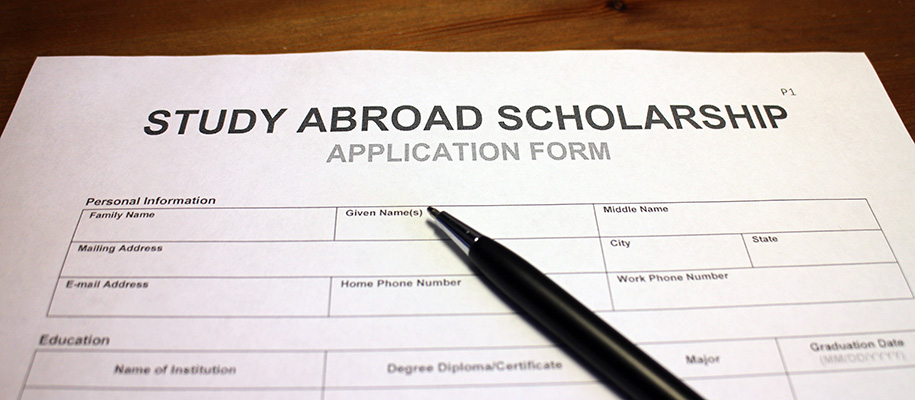Studying abroad is a unique opportunity to step into a new culture—but that doesn’t mean you can take that step for free. Study abroad programs can add up once you get to your international destination. You don't want to stress about your money problems the whole time you're in a foreign country. If you are nervous about financial matters while studying abroad, here are some tips based on my personal study abroad experience.
1. Apply to as many study abroad scholarships as possible
Depending on your study abroad program, there may be scholarship opportunities available directly from your external program provider, host institution, or home university. Opportunities may come in the form of grant funding too, so be sure to look out for all your financial options. Start researching as early as possible because deadlines for these scholarship awards may occur way before your study abroad application is even due.
2. Plan ahead and budget realistically
Before you leave, think about what your everyday expenses will be in another country. How much money will you need for food, transportation, and basic needs, like toiletries? Once you figure that out, you can see how much you’ll have left over for side trips and souvenirs. Use resources like budgeting templates and other money-saving strategies to keep you and your finances organized.
3. Know the currency exchange rate and how expensive everyday things are
Do you know how much food, clothes, and toothbrushes cost in the country you're heading to? This is related to your planning and budgeting, but planning out your everyday expenses is a little harder when the country you are going to uses a completely different currency. Familiarize yourself with exchange rates to minimize sticker shock and keep on budget once you arrive.
Related: 6 Smart Financial Plans Before You Study Abroad
4. Watch out for ATM and exchange fees
Many American banks charge fees every time you use an ATM overseas (or domestically for that matter). While a dollar or two may seem minor, these fees can add up if you only take out small amounts of money at a time. One way around this is to use the ATM as infrequently as possible, but that means carrying more cash with you, which isn’t always a good idea. Try finding a bank that doesn’t have overseas ATM fees or that reimburses you for them, which is what I did.
5. Don’t have all of your money tied to one card or account
Accidents and emergencies happen, and if your debit card gets lost or taken, you don’t want to be left without a way to access your money while studying abroad. I created a secondary, international-friendly bank account before I left and kept some of my funds in the other account in case my main card or financial source was compromised.
6. Decide what’s worth a splurge and what’s not
No matter how interesting fancy international cuisine and souvenirs may be, not everything will be worth splurging on. For me, this meant spending a little more on travel and international experiences than material souvenirs. Memories stay with you forever, while souvenirs may break or get lost during travel. At the same time, having a few meaningful keepsakes from the places you visit is also a nice way to remember your travels, but these don’t have to be expensive.
Related: When Is It Appropriate to Splurge as a College Student?
Study abroad programs can be a life-changing experience, but managing your finances wisely is key to making the most of it. By applying for scholarships, budgeting, understanding exchange rates, avoiding unnecessary fees, and being mindful of your spending, you can reduce financial stress and focus on enjoying your time while studying abroad. Prioritize experiences over material purchases, and plan carefully so you’re prepared for unexpected expenses. With these tips in mind, you’ll be better equipped to have a fulfilling and affordable study abroad journey.
Not sure yet where you want to study abroad? Consider these 5 Unique Locations for Your Study Abroad Travels and get excited for an amazing adventure.





